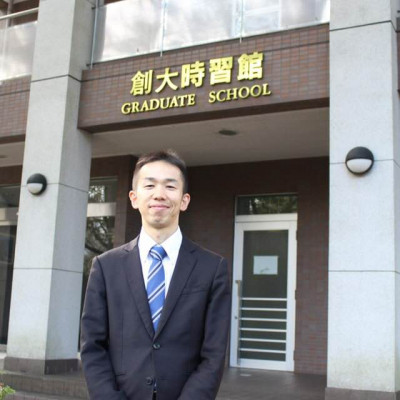Omura Takanori大村孝紀
Soka University
Teaching English at Soka university as an assistant lecture.

Sessions
How to Enhance Japanese University Students’ Self-Esteem. ~ An Attempt on Self-Affirmation in Written Form ~
Nowadays, a growing number of institutions and educators in English Language teaching (ELT) has been highlighting its psychological aspect. Particularly, self-affirmation methods that contain psychological effects on students’ academic achievement are noticeable in a recent study (Cohen et al, 2009). The purpose of this study is to investigate whether a regular self-affirmation in written-form can improve the degree of self-esteem, specifically, Global Self-Esteem (GSE) and Foreign Language Self-Esteem (FLSE). The research design is quantitative research using online surveys as the main instrument. The participants of this study were 55 university students who were from three different faculties of a private university in Tokyo. The research examined and compared their GSE and FLSE of two experimental groups and a control group at the beginning and the end of the semester. Whereas self-affirmation in written form was mandatory for the experimental groups in every class, the control group was not asked to do any self-affirmation. The results showed that the students’ self-esteem in the experimental groups was boosted by self-affirmation in written-form to some extent. The findings of this study will benefit numerous educators and students since the enhancement of students’ self-esteem is a profound source for their language learning.
A CEFR-informed Action Research Model: Developing a research plan.
The JALT CEFR & LP SIG is currently supporting teacher-researchers through a collaborative Kaken research project entitled “Language Education reform using action research: Putting CEFR’s educational principles into practice”. During the Forum, project participants will share the research plans they designed using Stage 1 of a CEFR-focused Action Research Model (CARM) developed by the SIG. These plans were designed in part through collaboration facilitated during workshops held in the first year of the project. The SIG forum will be an opportunity to discuss Stage II, the implementation of the research plan which involves two aspects: the participants’ plan to (1) trial proposed solutions to their teaching-learning dilemma (i.e. the focus of their research plan), and (2) collect data to critically examine the effectiveness of this solution. Forum participants are encouraged to contribute to this ongoing collaborative process to help move these research projects forward, as well as reflect on their current practice and consider how the CEFR and CARM might be utilized in their own contexts. The forum will conclude with a discussion of the strengths and weaknesses of the CARM model and the goals for the second year of the KAKEN project.